Your search “Keep%20the%20death%20penalty%abolished%20in%20the%20ePhilippfines%20e%20e%20e%20e%20e%20e%20e%20e%20e%20e/page/www.centaurtheatre.com ”
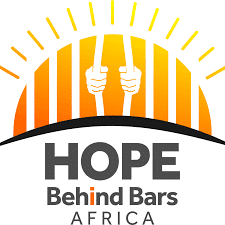
Member(s)
Hope Behind Bars Africa
on 5 September 2023
Hope Behind Bars Africa provides free legal services and direct support to indigent individuals in contact with the justice system while promoting criminal justice reforms through research, evidence-based advocacy, and technology.
2023
Nigeria

Member(s)
Human Rights Association
on 2 May 2023
The Human Rights Association (İnsan Hakları Derneği) is a non-governmental, independent, and voluntary body. The association, which was founded in 1986 by 98 human rights defenders, today has 27 branches, 7 representative offices, and ~8,000 members. İHD is the oldest and largest human rights organization in Turkey and its “sole and specific goal is to […]
2023
Turkey

Member(s)
International Bar Association’s Human Rights Institute (IBAHRI)
on 14 March 2023
The International Bar Association’s Human Rights Institute (IBAHRI) works with the global legal community to promote and protect human rights and the independence of the legal profession worldwide. The IBAHRI is an autonomous and substantively independent entity of the International Bar Association (IBA), the world’s leading organisation of international legal practitioners, bar associations and law […]
2023
United Kingdom

Member(s)
Harm Reduction International
on 30 April 2020
Harm Reduction International is a leading NGO dedicated to reducing the negative health, social and legal impacts of drug use and drug policy. We promote the rights of people who use drugs and their communities through research and advocacy to help achieve a world where drug policies and laws contribute to healthier, safer societies. Since […]
2020
United Kingdom

Member(s)
Fédération Syndicale Unitaire (FSU)
on 30 April 2020
The United Trade-Union Federation (FSU) brings together 22 national trade unions in the fields of education, teaching, research, culture, training and social integration. They represent the majority or a large proportion of workers in their professional fields. FSU unites these national trade unions by combining diversity, pluralism and unity. Its characteristic organisational innovation is to […]
France

Member(s)
Kenyan Section of the International Commission of Jurists (ICJ-KENYA)
on 30 April 2020
Mandate and goals : – To develop, strengthen and protect the principles of the rule of law in Kenya. – Develop, maintain and protect the independence of the judiciary and the legal profession in Kenya. – Protect and promote the enjoyment of human rights in Kenya and Africa. Kind of actions : – Legal research […]
Kenya

Member(s)
Barreau de Paris
on 30 April 2020
The Paris Bar was founded under the reign of Louis XIV. Nowadays, it represents around 20 000 lawyers, i.e. nearly half of those practicing in France. Its prime objectives are to organise and structure the legal profession, to strengthen training and adapt it to the deep changes occurring in society and to expand the role […]
France
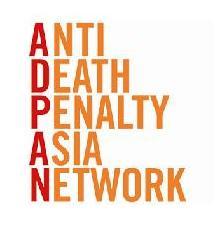
Member(s)
Anti-Death Penalty Asia Network (ADPAN)
on 30 April 2020
The Anti-Death Penalty Asia Network (ADPAN) was founded in Hong Kong on the World Day against the Death Penalty in 2006. In 2014, at its first General Meeting in Taipei, Taiwan, Anti-Death Penalty Asia Network (ADPAN) members approved ADPAN’s Constitution, and ADPAN’s first Executive Committee was elected. ADPAN, an independent Asia-Pacific network committed to working […]
Malaysia

Member(s)
German Coalition to Abolish the Death Penalty
on 30 April 2020
The Initiative gegen die Todesstrafe e.V. (German Coalition to Abolish the Death Penalty – GCADP) was founded in 1997 and is a non-profit organization since 2000. Our association is committed to the worldwide abolition of the death penalty. Our work is based on the contents of the Universal Declaration of Human Rights of 1948 as […]
Germany

Member(s)
Réseau d’alerte et d’intervention pour les droits de l’Homme (RAIDH)
on 30 April 2020
The Alert and Intervention Network for Human Rights (Réseau d’alerte et d’intervention pour les droits de l’Homme (RAIDH) aims to organise, finance and support any work, initiatives, measures, ideas or discussions which aim to defend and promote human rights (particularly civil and political rights, economic, social and cultural rights, international humanitarian rights, rights for refugees, […]
France
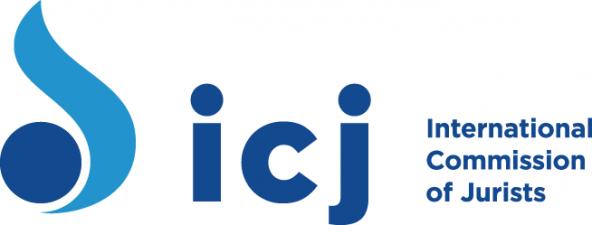
Member(s)
International Commission of Jurists
on 30 April 2020
The International Commission of Jurists (ICJ) is dedicated to promoting rule of law and advancement of human rights around the world. The ICJ statute provides: The Commission carries out activities at the global, regional, national and local level and in particular takes effective steps to: 1. Support and advance the Rule of Law and human […]
Switzerland
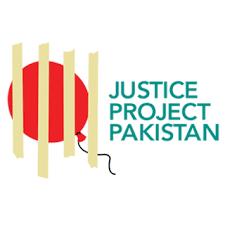
Member(s)
Justice Project Pakistan (JPP)
on 30 April 2020
Justice Project Society, commonly referred to as Justice Project Pakistan (JPP), represents the most vulnerable Pakistani prisoners facing the harshest punishments at home and abroad, including those facing the death penalty, mentally ill prisoners, juvenile prisonners, women, victims of police torture, and overseas Pakistani prisoners. JPP was the winner of the 2016 Franco-German Human Rights […]
Pakistan

Member(s)
International Federation for Human Rights (FIDH)
on 30 April 2020
The International Federation for Human Rights (FIDH)’s mandate is to act effectively to ensure all the rights laid down in the Universal Declaration of Human Rights are respected. These include civil and political rights, as well as economic, social and cultural ones. The FIDH is a federation of 141 leagues in 100 countries. It coordinates […]
France

Member(s)
International Federation of ACATs (FIACAT)
on 30 April 2020
The International Federation of ACATs (Action by Christians for the Abolition of Torture), FIACAT, is an international non-governmental human rights organisation, set up in 1987, which works towards the abolition of torture and the death penalty. The Federation brings together some thirty national associations, the ACATs, present in four continents. FIACAT – representing its members […]
France

Member(s)
Witness to Innocence
on 30 April 2020
The mission of Witness to Innocence (WTI) is to unite U.S. exonerated death row survivors and their loved ones to become a powerful force for social justice and transformation. WTI seeks to abolish the death penalty, to reform the U.S. criminal justice system to prevent wrongful convictions, and to secure fair financial compensation and social […]
United States

Member(s)
Avocats Sans Frontières France
on 30 April 2020
The mandate and objectives of Avocats Sans Frontières France are: 1. Defending lawyers and defenders of human rights subject to threats or attacks of any kind because of their exercise professional; 2. Contribute to the effective implementation of human rights, universally recognized for ensuring the acces to any private person to a free and independent […]
France

Member(s)
National Lawyers Guild (NLG)
on 30 April 2020
The National Lawyers Guild (NLG) is an association dedicated to the need for basic and progressive change in the structure of the US political and economic system. It seeks to unite the lawyers, law students, legal workers and jailhouse lawyers of America in an organization that shall function as an effective political and social force […]
United States

Member(s)
Ville de Braine-l’Alleud
on 30 April 2020
The town of Brain-l’Alleud is located in Brabant wallon in the Hain valley, about twenty kilometres from Brussels. It has 37,000 inhabitants. Previously the site of the Battle of Waterloo in 1815, today the town welcomes much more peaceful activities, including a large number of NGOS and in particular an Amnesty International group and the […]
Belgium

Member(s)
People of Faith Against the Death Penalty
on 30 April 2020
People of Faith Against the Death Penalty (PFADP) is a nongovernmental organisation whose mission is to educate and mobilise faith communities to act to abolish the death penalty in the United States. Founded in 1994 in North Carolina, PFADP focuses its programs on organising among faith communities in the Southern United States, where most executions […]
United States

Member(s)
Palestinian Center for Human Rights
on 30 April 2020
The Palestinian Centre for Human Rights (PCHR) is an independent Palestinian human rights organisation based in Gaza City. It enjoys Consultative Status with the ECOSOC of the United Nations and is an affiliate of the International Commission of Jurists (Geneva), the International Federation for Human Rights (Paris), the Euro-Mediterranean Human Rights Network (Copenhagen) and the […]
State of Palestine

Member(s)
National Association of Criminal Defense Lawyers (NACDL)
on 30 April 2020
The National Association of Criminal Defense Lawyers is the preeminent organization advancing the mission of the criminal defense bar to ensure justice and due process for persons accused of crime or wrongdoing. A professional bar association founded in 1958, NACDL’s 12,000-plus direct members in 28 countries – and 90 state, provincial and local affiliate organizations […]
United States

Member(s)
Ligue des droits de l’Homme
on 30 April 2020
Founded in 1898 during the Dreyfus affair, the League for Human Right (LDH) has a rich history thanks to a century of activism and attentive monitoring of all major contemporary issues. Originally, its mandate was to defend an innocent man, victim of anti-Semitism and reason of state, but the LDH expanded its actions to include […]
France
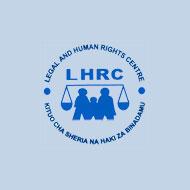
Member(s)
Legal and Human Rights Centre (LHRC)
on 30 April 2020
The Legal and Human Rights Centre (LHRC) is registered as a private, non-governmental, non-partisan and non-profit making organization based in Tanzania, East Africa. The LHRC works to create legal and human rights awareness among the public, in particular the underprivileged section of the society of Tanzania, through legal and civic education, provision of legal aid, […]
United Republic of Tanzania

Member(s)
Journey of Hope… From Violence to Healing
on 30 April 2020
“Journey of Hope…from Violence to Healing is an organisation led by murder victim family members joined by death row family members, family members of the executed, the exonerated, and others with stories to tell, that conducts public education speaking tours and addresses alternatives to the death penalty. Every year, the organisation arranges a Journey of […]
United States

Member(s)
Città di Reggio Emilia
on 30 April 2020
For a long time, the city of Reggio Emilia has been proud of its strong vocation for the struggle in defense of Human Rights, which is supported by the commitment of the entire community. An example is that, in order to strengthen its contribution in the struggle against apartheid in South Africa, the city signed […]
Italy

Member(s)
The Human Rights Centre “Viasna”
on 30 April 2020
The Human Rights Centre “Viasna” is a non-governmental human rights organization active since 1996. It is a nation-wide NGO with a central office in Minsk and a dozen local offices across the country. Viasna has about 200 members. In 2003, the Supreme Court groundlessly cancelled the registration of Viasna for its participation in the observation […]
Belarus
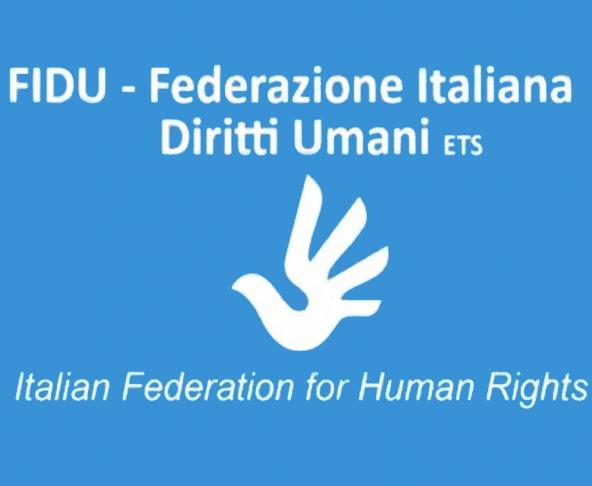
Member(s)
Italian Federation for Human Rights (FIDU)
on 30 April 2020
Active since 1987 as Italian Helsinki Committee, FIDU promotes the protection of human rights as enshrined in the Universal Declaration of Human Rights of 1948, the International Covenant on Civil and Political Rights and the International Covenant on Economic, Social in other relevant international documents. FIDU therefore intends to work to spread the knowledge of […]
Italy

Member(s)
HURILAWS
on 30 April 2020
HURILAWS began operations in 1997 as a specialist provider of human rights legal services and a purveyor of skills in the legal aspects of transition management. Today HURILAWS is also a public policy think tank working towards attainment of development, human rights and good governance. In particular, HURILAWS is the driver of the Multi-Sector Law […]
Nigeria
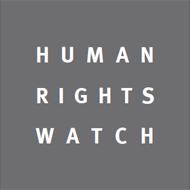
Member(s)
Human Rights Watch
on 30 April 2020
Human Rights Watch is a nonprofit, nongovernmental human rights organization made up of more than 275 staff members around the globe. Its staff consists of human rights professionals including country experts, lawyers, journalists, and academics of diverse backgrounds and nationalities. Human Rights Watch is known for its accurate fact-finding, impartial reporting, effective use of media, […]
France

Member(s)
Belarusian Helsinki Committee
on 30 April 2020
Founded in 1995, the National Human Rights Public Association “Belarusian Helsinki Committee” is one of the oldest human rights defenders organizations in Belarus. The list of its founders includes the nation’s most prominent leaders such as Vasil’ Bykau, Sviatlana Alexievich (Nobel prize in literature 2015). BHC sees as its main objective creating of civic context, […]
Belarus
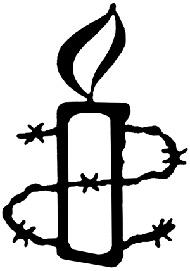
Member(s)
Amnesty International (AI)
on 30 April 2020
Amnesty International (AI) is a worldwide voluntary activist movement working for human rights. It is independent of any government, political ideology, or religious creed, economic interest or religion. It does not support or oppose any government or political system, nor does it support or oppose the views of the victims whose rights it seeks to […]
United Kingdom

Member(s)
Association Marocaine des Droits Humains (AMDH)
on 30 April 2020
Association marocaine des droits humains (AMDH) works towards safeguarding human dignity and for the respect, defence and promotion of human rights. Convinced of the universal nature of these rights, the AMDH bases its action on the international agreements which defend them. It campaigns for them to be respected in the political, civil, economic, social and […]
Morocco

Member(s)
American Friends Service Committee
on 30 April 2020
The American Friends Service Committee (AFSC) carries out service, development, social justice and peace programs throughout the world. It was founded by Quakers during World War 1 to provide conscientious objectors with an opportunity to aid civilian war victims. The AFSC’s work is based on the Quaker belief in the worth of every person, and […]
United States

Member(s)
ACAT France
on 30 April 2020
ACAT-France – Action by Christians for the Abolition of Torture – is a human rights NGO that campaigns for the abolition of torture and the death penalty, and defends the right to asylum. Founded in 1974, ACAT-France has 28,000 members, including nearly 6,000 supporters and a team of 25 professionals working in its national secretariat. […]
France
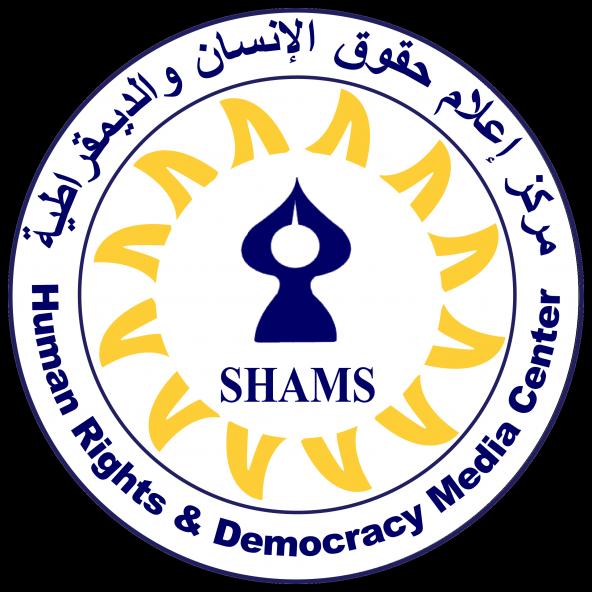
Member(s)
Human Rights and Democracy Media Center (SHAMS)
on 30 April 2020
Human Rights and Democracy Media Center “SHAMS” is a Palestinian non-governmental non-profit organization, established in 2003 in Ramallah by a group of academicians, educated, advocates and human rights activists .“SHAMS” Center holds Special Consultative Status with the Economic and Social Council (ECOSOC) of the United Nations “SHAMS” Center believes that dissemination and generalization of human […]
State of Palestine
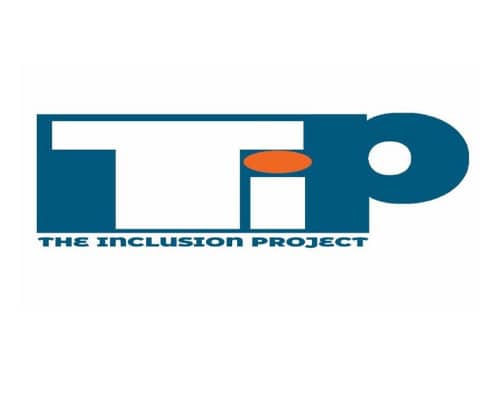
Member(s)
The Inclusion Project
on 13 September 2024
The Inclusion Project (TIP) is a legal services provider founded in 2019 and registered in Nigeria as The Inclusion Project.
2024
Nigeria
Document(s)
جماربو حنِملاو ق
By She was convicted for infanticide in 1895 and became the only woman ever hanged in New Zealand. He was a young lad from Bluff who was shot for desertion in World War I. Now Minnie Dean and Victor Spencer share their stories with you—just hours before their planned executions by the state., on 1 January 2013
2013
Working with...
More details Download [ - 0 Ko ]
يق |ناسنلإا قوقحل ةيماسلا ةدحتملا مملأا ةيضوفم بتكم / | |2013||externe | | http://www.ohchr.org/Documents/AboutUs/CivilSociety/OHCHRFundsGuide_ar.pdf|OHCHR-2013|Academic report|International law, Networks, |
en12671|OHCHR Practical Guide for Civil Society: Human Rights Funds, Grants and Fellowships|This Practical Guide – the fourth in the series of practical guides for civil society – provides a brief description of funding sources, grants and fellowships administered by or with the participation of the Office of the United Nations High Commissioner for Human Rights (OHCHR). |Office of the United Nations High Commissioner for Human Rights / | |2013||externe | | http://www.ohchr.org/Documents/AboutUs/CivilSociety/OHCHRFundsGuide_en.pdf|OHCHR-2013|Academic report|International law, Networks, |
en12670|Fighting for Their Lives: Inside the Experience of Capital Defense Attorneys|How do attorneys who represent clients facing the death penalty cope with the stress and trauma of their work? Through conversations with twenty of the most experienced and dedicated post-conviction capital defenders in the United States, Fighting for Their Lives explores this emotional territory for the first time|Susannah Sheffer / Vanderbilt University Press / | |2013|United States|externe | | http://www.susannahsheffer.com/fighting-for-their-lives.html||Book|Country/Regional profiles, |
en12669|Invers Theatre Company presents A Cry Too Far From Heaven”
- Document type Working with...
- Themes list Academic report
Document(s)
Innocence Lost: A Play About Steven Truscott
By Beverley Cooper / Centaur Theater Company, on 1 January 2013
Working with...
More details See the document
In 1959, the Canadian justice system nearly killed an innocent 14-year-old boy. The fact that Steven Truscott was wrongly convicted of the rape and murder of 12-year-old Lynne Harper that year, and sentenced to hang, now seems surreal. All the more so since he’s alive and well and living quietly with his family after 10 years of unjust incarceration – and many more years as an obscure factory worker, father and grandfather, after suffering the consequences of a destroyed reputation.
- Document type Working with...
- Themes list Public opinion, Innocence,
Document(s)
Moving away from the death penalty
By Office of the High Commissioner for Human Rights (OHCHR) , on 1 January 2015
2015
International law - United Nations
More details See the document
The present publication provides an extensive review of global trends in death penalty matters, a summary of the applicable international legal standards, and the current status of legislative reform related to the death penalty in South-East Asia. As a product of the OHCHR Regional Office for South-East Asia, this publication is intended to be a resource for further discussions in the region toward the abolition of the death penalty.
- Document type International law - United Nations
- Themes list Trend Towards Abolition,
Document(s)
THE RACIAL GEOGRAPHY OF THE FEDERAL DEATH PENALTY
By Robert J. Smith / Ben Cohen / Washington Law Review, on 1 January 2010
2010
Article
United States
More details See the document
Scholars have devoted substantial attention to both the overrepresentation of black defendants on federal death row and the disproportionate number of federal defendants charged capitally for the murder of white victims. This attention has not explained (much less resolved) these disquieting racial disparities. Little research has addressed the unusual geography of the federal death penalty, in which a small number of jurisdictions are responsible for the vast majority of federal death sentences. By addressing the unique geography, we identify a possible explanation for the racial distortions in the federal death penalty: that federal death sentences are sought disproportionately where the expansion of the venire from the county to the district level has a dramatic demographic impact on the racial make-up of the jury. This inquiry demonstrates that the conversation concerning who should make up the jury of twelve neighbors and peers—a discussion begun well before the founding of our Constitution—continues to have relevance today. Louisiana, Missouri, Virginia and Maryland referred to.
- Document type Article
- Countries list United States
- Themes list Networks,
Document(s)
How the European Union Works: Your guide to the EU institutions
By European Union, on 1 January 2007
2007
Working with...
fresMore details See the document
The European Union (EU) is a family of democratic European countries working together to improve life for their citizens and to build a better world. The following chapters describe the Treaties, the EU institutions and the other bodies and agencies, explaining what each entity does and how they interact.
- Document type Working with...
- Themes list Networks,
- Available languages Comment fonctionne l'Union européenneEl Funcionamiento de la Unión Europea: Guía del Ciudadano sobre las Instituciones de la UE
Document(s)
The abolition of the death penalty and its alternative sanction in Eastern Europe: Belarus, Russia and Ukraine
By Penal Reform International / Alla Pokras, on 1 January 2012
2012
NGO report
ruMore details See the document
This research paper focuses on the application of the death penalty and its alternative sanction in three countries of Eastern Europe: the Republic of Belarus, the Russian Federation and kraine. Its aim is to provide up-to-date information about the laws and practices relating to the application of the death penalty in this region, including an analysis of the alternative sanctions to the death penalty and whether they reflect international human rights standards and norms.
- Document type NGO report
- Themes list Cruel, Inhuman and Degrading Treatment and Punishment, Death Row Phenomenon, Country/Regional profiles,
- Available languages Отмена смертной казни и ее альтернативы в странах Восточной Европы: Беларуси, России, Украине
Document(s)
Death Penalty in the Palestinian Legal System A Legal review
By Maan Shihda Ideis / Independent Commission for Human Rights , on 1 January 2010
2010
NGO report
More details See the document
This study analyzes the Palestinian legislations in light of the UN procedures and criteria on the issuance, imposition or execution of death sentences. The study is divided into two main parts, each of which is dedicated to either the international or national legislation on death penalty. This part is divided into two main chapters. Chapter One addresses the substantive provisions on death penalty and Chapter Two is concerned with the procedural provisions. This classification is inline with the international efforts for the abolition of death penalty, particularly because the UN, in its capacity as the representative of the international community, has not banned the capital punishment but opted for the introduction of a number of legal actions for the States to consider when they include such penalty in their legislations, or when such sentences are issued by the courts or actually executed. Thus, the procedural and the substantive provisions are addressed separately in this study, both at the international and national levels.
- Document type NGO report
- Themes list International law,
Document(s)
Middle East and North Africa: Algeria, Egypt, Jordan, Lebanon, Morocco and Tunisia
By Penal Reform International, on 1 January 2012
2012
NGO report
More details See the document
The aim of this research paper is to provide upto-date information about the laws and practices relating to the application of the death penalty. It includes an analysis of the alternative anctions to the death penalty (life and long-term imprisonment) and whether they reflect international human rights standards and norms.
- Document type NGO report
- Themes list Cruel, Inhuman and Degrading Treatment and Punishment, Death Row Phenomenon, Country/Regional profiles,
Document(s)
Death Penalty in the Palestinian Legal System: A Legal Review
By Maan Shihda Ideis / Independent Commission for Human Rights , on 1 January 2010
2010
International law - Regional body
arMore details See the document
ICHR carried out this review in order to assist the PNA in its attempts to join international community that did abolish death penalty from their legal system. In order for the PNA to ratify the various international conventions stipulating respect for the right to life and prohibits the execution of every human being. In this study, ICHR aims to define the practical steps that the PNA should take in order to abolish death penalty from the Palestinian legal system. According to Article (10) of the Basic Law of 2002, the human rights and fundamental freedoms shall be binding and respected by the PNA which shall, without delay, accede to the regional and international declarations and instruments that protect human rights, especially those international charters and resolutions that governing the right to life, the abolition of death penalty, and/or placing restrictions on the procedures of its execution.
- Document type International law - Regional body
- Themes list Networks,
- Available languages مراجعة قانونية لعقوبة الإعدام في سطيني
Document(s)
Georgian : უვადო თავისუფლების აღკვეთისა და გრძელვადიანი სასჯელების გამოყენება და აღსრულება საქართველოში
By Penal Reform International / Tsira Chanturia / Maia Khasia / Jacqueline Macalesher, on 8 September 2020
2020
NGO report
ruMore details See the document
საქართველოში ბოლო განაჩენი სიკვდილით დასჯის შესახებ აღსრულებულ იქნა სავარაუდოდ 1992/93 წლებში. სიკვდილით დასჯილთა შესახებ სტატისტიკურიინფორმაცია გამოთხოვილ იქნა სასჯელაღსრულების პრობაციისა და იურიდიული დახმარების სამინისტროს სასჯელაღსრულების დეპარტამენტიდან, თუმცა მიღებული პასუხის თანახმად, აღნიშნული ინფორმაცია ვერ იქნა მოძიებული
- Document type NGO report
- Themes list Trend Towards Abolition,
- Available languages Отмена смертной казни и альтернативные наказания на Южном Кавказе: Азербайджан, Армения, Грузия
Document(s)
A Perverse and Ominous Enterprise: The Death Penalty and Illegal Executions in Saudi Arabia
By Helena Kennedy, on 1 January 2019
2019
International law - Regional body
More details See the document
The evidence reviewed demonstrates frequent and heavy-handed recourse to the death penalty by Saudi Arabia in recent months. At least 149 people were executed in 2018, with at minimum 46 remaining on death row at the end of the year. A significant proportion of those executed were political dissidents, and a number were children at the time of their alleged offending. Each of these features connotes a grave violation of international human rights norms.
- Document type International law - Regional body
Document(s)
REPORT AND RECOMMENDATIONS ON THE ADMINISTRATION OF THE DEATH PENALTY IN CALIFORNIA
By CALIFORNIA COMMISSION ON THE FAIR ADMINISTRATION OF JUSTICE, on 1 January 2008
2008
Government body report
More details See the document
This report is divided into three parts. In Part A, the Commission identifies flaws in California’s death penalty system that render it dysfunctional, and remedies we unanimously recommend to repair it. Repairing the system would enable California to achieve the national average of a twelve year delay between pronouncement of sentence and the completion of all judicial review of the sentence. In Part B, the Commission offers the Legislature, the Governor, and the voters of California information regarding alternatives available to California’s present death penalty law. The Commission makes no recommendation regarding these alternatives. In Part C, the Commission presents recommendations relating to miscellaneous aspects of the administration of California’s death penalty law. We were not able to reach unanimous agreement upon all of these recommendations, and dissents are noted where applicable. Commissioner Jerry Brown, Attorney General of California, agrees in principle with some of the Commission’s recommendations as set forth in his separate statement. Commissioner William Bratton, Chief of Police for the City of Los Angeles, abstains from the specific recommendations in this Report, and will issue a separate explanatory statement.
- Document type Government body report
- Themes list Networks,
Document(s)
Bloodshed and Lies: Mohammed bin Salman’s Kingdom of Executions
By Reprieve UK and European Saudi Organization for Human Rights, on 31 January 2023
2023
NGO report
Saudi Arabia
arMore details See the document
Saudi Arabia is a flagrant abuser of the right to life. Between 2010 and 2021, Saudi Arabia executed at least 1243 people, making it one of the most rampant executioners in the world. As of December 2022, the Saudi regime had executed at least a further 147 people in 2022, including 81 people in one day in a mass execution on 12 March 2022.
Saudi Arabia’s use of the death penalty has drastically increased since 2015. This escalation has taken place on the watch of Saudi Arabia’s King Salman, who acceded the throne on 23 January 2015, and his son, Crown Prince and Prime Minister Mohammed bin Salman. The annual rate of executions has almost doubled since King Salman and Mohammed bin Salman came to power in 2015. From 2010-2014 there was an average of 70.8 executions per year. From 2015-2022 there was an average of 129.5 executions per year – a rise of 82%. The six bloodiest years of executions in Saudi Arabia’s recent history have all occurred under the leadership of Mohammed bin Salman and King Salman (2015, 2016, 2017, 2018, 2019 and 2022).
- Document type NGO report
- Countries list Saudi Arabia
- Available languages سفك الدماء والأكاذيب: مملكة إعدام محمد بن سلمان
Document(s)
Testimonies tool – World Day 2022
By the World Coalition Against the Death Penalty, on 28 June 2022
2022
World Coalition
frMore details Download [ pdf - 764 Ko ]
The World Coalition and its members have collected testimonies of victims of torture in the death penalty. Confessions, death row phenomenon, moments before the execution, psychological torture of those not sentenced to death, methods of execution. Read the stories of these victims.
We thank all those who agreed to share their testimonies and their stories.
- Document type World Coalition
- Available languages Outil témoignages - Journée mondiale 2022
Document(s)
Carrying out executions took a secret toll on workers — then changed their politics
By Chiara Eisner, on 16 November 2022
2022
Article
United States
More details See the document
Most of the workers NPR interviewed reported suffering serious mental and physical repercussions. But only one person said they received any psychological support from the government to help them cope. The experience was enough to shift many of their perspectives on capital punishment. No one who NPR spoke with whose work required them to witness executions in Virginia, Nevada, Florida, California, Ohio, South Carolina, Arizona, Nebraska, Texas, Alabama, Oregon, South Dakota or Indiana expressed support for the death penalty afterward, NPR found.
- Document type Article
- Countries list United States
Document(s)
The death penalty and the prohibition of torture and other cruel, inhuman or degrading treatment or punishment
on 21 August 2021
2021
NGO report
World Coalition
Cruel, Inhuman and Degrading Treatment and Punishment
frMore details See the document
The signatory organizations are convinced that the death penalty is incompatible with the prohibition of torture and cruel, inhuman or degrading treatment or punishment, which is a peremptory norm of international law (jus cogens) and should thus be abolished. The death penalty is only tolerated by international law and standards to the extent that it may only be imposed for the most serious crimes and applied in a way that causes the least possible suffering. However, the signatory organizations believe that from the sentencing to the execution, the death penalty inevitably causes physical harm and psychological suffering amounting to torture or ill-treatments.
The present position paper documents the extent to which international and regional organisation have already recognised a violation of the absolution prohibitionof torture in the application and imposition of the death penalty.
- Document type NGO report / World Coalition
- Themes list Cruel, Inhuman and Degrading Treatment and Punishment
- Available languages La peine de mort et l'interdiction de la torture et des peines ou traitements cruels, inhumains ou dégradants
Document(s)
Doomed to Repeat: The Legacy of Race in Tennessee’s Contemporary Death Penalty
By Death Penalty Information Center, on 16 June 2023
2023
NGO report
Fair Trial
United States
More details See the document
This report explores the current issues with capital punishment in Tennessee through a historical lens, tracing the origins of the use of the death penalty from lynchings and other forms of racial violence directed at Black Tennesseans. The stories of individuals and communities that have interacted with different facets of Tennessee’s justice system throughout history suggest that, in many ways, even though centuries have passed, the experiences of discrimination toward Tennessee’s communities of color continue. A meaningful understanding of the state’s history and its legacy of violence and racism is essential to avoid repeating the mistakes of the past.
- Document type NGO report
- Countries list United States
- Themes list Fair Trial
Document(s)
Deterrence and the Death Penalty Guide
By The Death Penalty Project, on 1 November 2022
2022
NGO report
Public Opinion
More details See the document
The most common justification for the retention of the death penalty among the minority of states that continue to sentence to death and execute individuals who are found guilty of committing certain serious offences is a belief that this punishment has a unique deterrent effect. The Death Penalty Project produced this resource on deterrence and the death penalty.
- Document type NGO report
- Themes list Public Opinion
Document(s)
Public Opinion and the Death Penalty Guide
By The Death Penalty Project, on 1 November 2022
NGO report
Public Opinion
More details See the document
When faced with calls to join the majority of states worldwide that have now abolished capital punishment, a key justification, typically relied upon by retentionist states, is that their citizens are not yet ready for abolition, and that political leaders must represent ‘the will of the people.’ The Death Penalty Project produced this resource on public opinion and the death penalty.
- Document type NGO report
- Themes list Public Opinion
Document(s)
The Death Penalty Is Dead Wrong: Jus Cogens Norms and the Evolving Standard of Decency
By Geoffrey Sawyer / Penn State International Law Review, on 1 January 2004
2004
Article
Nigeria
More details See the document
The conviction of Amina Lawal in Nigeria for committing adultery and sentence of death by stoning created an international outcry of support to overturn her sentence. The support she received is a reflection of the outrage many around the world feel toward this particular method of execution, and in a larger context the growing social norm that the death penalty should be abolished. As more of the world looks upon the death penalty as unfair, or cruel and unusual, or as torture, arguably, a jus cogens norm prohibiting the death penalty has developed in international law, and will ultimately be the vehicle by which the death penalty will be abolished worldwide. Part I of this comment will detail the plight of Amina Lawal, and how her situation is indicative of the globalization of human rights norms. In Part II, this comment will examine the meaning of a jus cogens norm and how it can be established in the context of capital punishment. Using human rights treaties, the law and practice of other nations, and international tribunal decisions, Part III will assert, citing other contexts, such as the “right to life,” and the already entrenched jus cogens norm prohibiting torture, that a jus cogens norm abolishing the death penalty has arguably already been established. Finally, Part IV will assess what the effect of the establishment of a jus cogens norm prohibiting capital punishment.
- Document type Article
- Countries list Nigeria
- Themes list Stoning,
Document(s)
The Death Penalty Worldwide – Developments in 2006 (With amendments)
By Amnesty International, on 8 September 2020
2020
NGO report
arfresMore details See the document
The world continued to move closer to the universal abolition of capital punishment during 2006. By the end of the year 88 countries had abolished the death penalty for all crimes. The death penalty has now been abolished in law or practice by 128 countries. Other subjects covered in this document include significant judicial decisions; the use of the death penalty against child offenders; resumptions of executions; and campaigning activities to promote abolition.
- Document type NGO report
- Themes list Statistics,
- Available languages التطورات المتعلقة بعقوبة العدام في شتى أنحاء العالم في العام ٢٠٠٦La peine de mort dans le monde : évolution en 2006LA PENA DE MUERTE EN EL MUNDO: NOTICIAS DEL AÑO 2006
Document(s)
European Court for Human Rights cases involving the death penalty
By European Court for Human Rights Press Unit, on 24 June 2022
2022
International law - Regional body
Regional body report
Cruel, Inhuman and Degrading Treatment and Punishment
Death Row Conditions
Fair Trial
More details See the document
“[T]he [European Court of Human Rights] in Öcalan did not exclude that Article 2 [of the European Convention on Human Rights, protecting the right to life,] had already been amended so as to remove the exception permitting the death penalty. Moreover, … the position has evolved since then. All but two of the Member States have now signed Protocol No. 13 [to the Convention, concerning the abolishment of the death penalty in all circumstances,] and all but three of the States which have signed have ratified it. These figures, together with consistent State practice in observing the moratorium on capital punishment, are strongly indicative that Article 2 has been amended so as to prohibit the death penalty in all circumstances. Against this background, the Court does not consider that the wording of the second sentence of Article 2 § 1 continues to act as a bar to its interpreting the words ‘inhuman or degrading treatment or punishment’ in Article 3 [of the Convention, prohibiting torture and inhuman or degrading treatment,] as including the death penalty …” (Al-Saadoon and Mufdhi v. the United Kingdom judgment of 2 March 2010, § 120).
- Document type International law - Regional body / Regional body report
- Themes list Cruel, Inhuman and Degrading Treatment and Punishment / Death Row Conditions / Fair Trial
Document(s)
The death penalty worldwide developments in 2007
By Amnesty International, on 1 January 2008
2008
NGO report
fresarMore details See the document
In 2007 the world continued to move closer to the universal abolition of the capital punishment. A historical landmark is the resolution on a moratorium on executions endorsed by the United Nations. By the end of the 2007, 91 countries have abolished the death penalty for all crimes. The death penalty has now been abolished in law or practice by 135 countries. Other subjects covered in this report include commutations, judicial reviews, use against child offenders; and extradition.
- Document type NGO report
- Themes list Statistics,
- Available languages La peine de mort dans le monde : évolution en 2007LA PENA DE MUERTE EN EL MUNDO: NOTICIAS DEL AÑO 2007تطورات عقوبة العدام على النطاق العالمي في 2007
Document(s)
THE MOST IMPORTANT FACTS OF 2003
By HANDS OFF CAIN, on 1 January 2004
2004
NGO report
enMore details See the document
The worldwide situation to date: The worldwide situation concerning the death penalty has once again registered a trend towards abolition in the past year. The countries or territories that to different extents have decided to give up the practice of capital punishment total 133, including the first months of 2004. Of these 81 have abolished the death penalty completely; 14 have abolished it for ordinary crimes; 1, Russia, as a member of the Council of Europe is committed to abolish it and in the meanwhile apply a moratorium on executions; 5 are observing moratoriums and 32 countries are de facto abolitionist, not having carried out executions for at least 10 years.
- Document type NGO report
- Themes list Statistics,
- Available languages Italian : I FATTI PIU´ IMPORTANTI DEL 2003 (e dei primi mesi del 2004)
Document(s)
The Mercy Workers, Death Penalty Mitigation Specialists
By Maurice Chammah, The Marshall Project, on 2 March 2023
2023
Article
Legal Representation
United States
More details See the document
For three decades, a little-known group of “mitigation specialists” has helped save death-penalty defendants in the USA by documenting their childhood traumas. A rare look inside one case.
- Document type Article
- Countries list United States
- Themes list Legal Representation
Document(s)
Anything But Humane
By Amnesty International - USA, on 8 September 2020
2020
Arguments against the death penalty
More details See the document
A fact sheet on the lethal injection in the United States. This page details the process of lethal injection with statements of US health professional associations on participation in execution.
- Document type Arguments against the death penalty
- Themes list Lethal Injection,
Document(s)
Death Penalty for Female Offenders
By Victor Streib / Ohio Northern University, on 1 January 2009
2009
Article
United States
More details See the document
The data herein are updated as often and as quickly as possible, with the last date of entry noted on the cover page. However, given the difficulty of gathering complete information from all jurisdictions and as soon as cases develop, these reports may under-report the number of female offenders under death sentences. The subjects of these reports are female offenders sentenced to death. They are not all referred to as women, since some were as young as age fifteen at the time of their crimes. However, no such very young female offenders are currently under death sentences. —- See bottom left hand corner of web page.
- Document type Article
- Countries list United States
- Themes list Women,
Document(s)
Key legal Instruments and texts adopted on Abolition of the death penalty by the Council of Europe
By Council of Europe, on 24 January 2023
2023
Regional body report
Trend Towards Abolition
frMore details See the document
All the Council of Europe documents related to abolition of the death penalty gathered in one page : decisions of the Committee of Ministers, resolutions of the Parliamentary Assembly, Treaties…
- Document type Regional body report
- Themes list Trend Towards Abolition
- Available languages Instruments juridiques clés et textes adoptés sur l'abolition de la peine de mort par le Conseil de l'Europe
Document(s)
Singapore’s death penalty for drug trafficking: What the research says and doesn’t
By Academia SG - Promoting Scorlorahsip Of/For/By Singapore, on 24 January 2024
2024
Academic report
Drug Offenses
Singapore
More details See the document
Published on October 7, 2023.
Of all retentionist countries, Singapore seems to be the most vocal about the need to execute individuals as a form of criminal punishment. MAI SATO (Monash University) reviews studies conducted or commissioned by Singapore’s Ministry of Home Affairs that claim public backing for and the effectiveness of the death penalty in managing drug trafficking. Sato finds that these studies provide far weaker evidence for using the death penalty for drug trafficking than their authors and officials citing them claim.
- Document type Academic report
- Countries list Singapore
- Themes list Drug Offenses
Document(s)
Little Furmans Everywhere: State Court Intervention and the Decline of the American Death Penalty
By Carol S. Steiker & Jordan M. Steiker, on 1 September 2022
2022
Academic report
Trend Towards Abolition
United States
More details See the document
This article retraces the evolution and recent decline of death peanlty in the United States, notablt through state court interventions. These dynamics between judicial and political action illuminate the importance of state court intervention in the story of the American death penalty’s precipitous decline, which has tended to foreground other institutional actors and to neglect the complex interactions among branches of government. State judicial rulings, though often highly technical and, therefore, less visible and accessible to the public, have been a pervasive and powerful force in the two-decade-long diminution of the practice of capital punishment across the United States.
- Document type Academic report
- Countries list United States
- Themes list Trend Towards Abolition
Document(s)
Peculiar Institution: America’s Death Penalty in an Age of Abolition
By David Garland / Belknap Press of Harvard University Press, on 8 September 2020
2020
Book
United States
More details See the document
This book offers a fresh perspective on why the death penalty endures in the United States when so many other countries in the Western world have already abolished it. The book seeks to understand the persistence of the death penalty in the U.S. as a social fact, using sociological, historical and legal analyses to explain the unique and peculiar manner in which the death penalty is applied. Garland concludes that the death penalty has survived in the United States because it is deeply connected to the fundamentally American institutions of local autonomy and popular democracy.
- Document type Book
- Countries list United States
- Themes list Networks,
Document(s)
Death Penalty: The Political Foundations of the Global Trend Towards Abolition
By Eric Neumayer / Human Rights Review, on 1 January 2008
2008
Article
More details See the document
The death penalty is like no other punishment. Its continued existence in many countries of the world creates political tensions within these countries and between governments of retentionist and abolitionist countries. After the Second World War, more and more countries have abolished the death penalty. This article argues that the major determinants of this global trend towards abolition are political, a claim which receives support in a quantitative cross-national analysis from 1950 to 2002. Democracy, democratisation, international political pressure on retentionist countries and peer group effects in relatively abolitionist regions all raise the likelihood of abolition. There is also a partisan effect, as abolition becomes more likely if the chief executive’s party is left wing-oriented. Cultural, social and economic determinants receive only limited support. The global trend towards abolition will go on if democracy continues to spread around the world and abolitionist countries stand by their commitment to press for abolition all over the world.
- Document type Article
- Themes list Trend Towards Abolition,
Document(s)
Moratorium on the use of the death penalty. Report of the Secretary-General (2008)
By United Nations, on 8 September 2020
2020
United Nations report
arruzh-hantesfrMore details See the document
The present report surveys respect for the rights of those sentenced to death as set out in the international human rights treaties and the guidelines established by the Economic and Social Council in 1984. Drawing on contributions of Member States, the report surveys various motivations for establishing a moratorium on or abolishing the death penalty, as well as those for retaining the death penalty. It also includes up-to-date statistical information on the worldwide use of the death penalty, including moratoriums established in States that have not abolished this form of punishment, together with relevant developments since the sixty-second session of the General Assembly. The report concludes by confirming the global trend towards abolition of the death penalty, the important role played by moratoriums in those States that seek to abolish it and possibilities for further work on the issue.
- Document type United Nations report
- Themes list Moratorium ,
- Available languages وقف استخدام عقوبة الإعدام :تقرير الأمين العامМоратории на применение смертной казни: Доклад Генерального секретаря暂停使用死刑: 秘书长的报告Moratoria del uso de la pena de muerte : Informe del Secretario GeneralMoratoires sur l'application de la peine de mort: Rapport du Secrétaire général
Document(s)
Capital punishment and implementation of the safeguards guaranteeing protection of the rights of those facing the death penalty: Report of the Secretary-General
By United Nations, on 1 January 2005
2005
United Nations report
arruesfrzh-hantMore details See the document
The present report, prepared pursuant to Economic and Social Council resolutions 1754 (LIV) of 16 May 1973 and 1995/57 of 28 July 1995, and Council decision 2005/247 of 22 July 2005, is the eighth quinquennial report of the Secretary-General on capital punishment. It covers the period 2004-2008 and reviews developments in the use of capital punishment. The report confirms a very marked trend towards abolition and restriction of the use of capital punishment in most countries. The rate at which States that retained the death penalty at the start of the quinquennium have abolished its use either in law or in practice is comparable with that of previous reporting periods, and may even be accelerating slightly. Moreover, countries that retain the death penalty are, with rare exceptions, significantly reducing its use in terms of numbers of persons executed and the crimes for which it may be imposed. Nevertheless, where capital punishment remains in force, there are serious problems with regard to the respect of international norms and standards, notably in the limitation of the death penalty to the most serious crimes, the exclusion of juvenile offenders from its scope, and guarantees of a fair trial.
- Document type United Nations report
- Themes list Trend Towards Abolition,
- Available languages عقوبة الإعدام وتنفيذ الضمانات التي تكفل حماية حقوق الذين يواجهون عقوبة الإعدام : م ذكّرة من الأمين العامСмертная казнь и применение мер, гарантирующих защиту прав тех, кому грозит смертная казнь : Доклад Генерального секретаряLa pena capital y la aplicación de las salvaguardias para garantizar la protección de los derechos de los condenados a la pena de muerte : Informe del Secretario GeneralPeine capitale et application des garanties pour la protection des droits des personnes passibles de la peine de mort: Rapport du Secrétaire général死刑和保护死刑犯权利的保障措施的执行情况: 秘书长的报告
Document(s)
Death sentences and executions in 2009
By Amnesty International, on 1 January 2010
2010
NGO report
arfresMore details See the document
This document summarizes Amnesty International’s global research on the use of the death penalty in 2009. More than two-thirds of the countries of the world have abolished the death penalty in law or in practice. While 58 countries retained the death penalty in 2009, most did not use it. Eighteen countries were known to have carried out executions, killing a total of 714 people; however, this figure does not include the thousands of executions that were likely to have taken place in China, which again refused to divulge figures on its use of the death penalty. For an update to this document please see http://www.amnesty.org/en/library/info/ACT50/005/2010/en
- Document type NGO report
- Themes list Statistics,
- Available languages أحكام الإعدام وعمليات الإعدام في عام 2009CONDAMNATIONS À MORT ET EXÉCUTIONS RECENSÉES EN 2009CONDENAS A MUERTE Y EJECUCIONES 2009
Document(s)
The question of the death penalty: Report of the Secretary-General
By United Nations, on 1 January 2006
2006
International law - United Nations
arrufrzh-hantesMore details See the document
The present report contains information covering developments during 2006. The report indicates that the trend towards abolition of the death penalty continues. This is illustrated, inter alia, by the increase in the number of countries that have abolished the death penalty and by the increase in ratifications of international instruments that provide for the abolition of this form of punishment.
- Document type International law - United Nations
- Themes list Trend Towards Abolition,
- Available languages دام عقوبة مسألة: العام الأمينВопрос о смертной казни: Доклад Генерального секретаряQuestion de la peine de mort : Rapport du Secrétaire général死刑问题: 秘书长的报告La cuestión de la pena capital: Informe del Secretario General
Document(s)
The International Library of Essays on Capital Punishment, Volume 3 : Policy and Governance
By Peter Hodgkinson / Ashgate Publishing, on 8 September 2020
2020
Book
More details See the document
This volume provides analyses of a range of subjects and issues in the death penalty debate, from medicine to the media. The essays address in particular the personal complexities of those involved, a fundamental part of the subject usually overridden by the theoretical and legal aspects of the debate. The unique personal vantage offered by this volume makes it essential reading for anyone interested in going beyond the removed theoretical understanding of the death penalty, to better comprehending its fundamental humanity. Additionally, the international range of the analysis, enabling disaggregation of country specific motivations, ensures the complexities of the death penalty are also considered from a global perspective.
- Document type Book
- Themes list Death Penalty,
Document(s)
Capital Punishment: New Perspectives
By Peter Hodgkinson / Ashgate Publishing, on 1 January 2013
2013
Book
More details See the document
The authors argue that capital litigators should use their skills challenging the abuses not just of process, but of the conditions in which the condemned await their fate, namely prison conditions, education, leisure, visits, medical services, etc. In the aftermath of successful constitutional challenges it is the beneficiaries (arguably those who are considered successes, having been ‘saved’ from the death penalty and now serving living death penalties of one sort or another) who are suffering the cruel and inhumane alternative.Part I of the book offers a selection of diverse, nuanced examinations of death penalty phenomena, scrutinizing complexities frequently omitted from the narrative of academics and activists. It offers a challenging and comprehensive analysis of issues critical to the abolition debate. Part II offers examinations of countries usually absent from academic analysis to provide an understanding of the status of the debate locally, with opportunities for wider application.
- Document type Book
Document(s)
Closing the Slaughterhouse
By Dale M Brumfield, on 8 December 2022
2022
Book
United States
More details See the document
On July 1, 2021, Virginia ended a 413-year tradition by abolishing the death penalty.
Many of those convicted from 1608 to 2017 deserved harsh punishment – but Virginia took harsh to a whole new level with its “finality over fairness” philosophy. Four hundred years of her racist, mob-driven capital punishment system ensnared many innocent and undeserving victims under the toxic guises of protecting white citizens or being “tough on crime.” So many of those killed by the state died with their guilt or innocence lost to history.
Virginia leads the nation with 1,390 executions. After a 1976 Supreme Court decision, Virginia institutionalized and streamlined the parade to the death chamber more efficiently than any other state, executing between 1976 and 2017 a breathtaking 73 percent of all who received death sentences. The national average is 16 percent.
- Document type Book
- Countries list United States
Document(s)
The International Library of Essays on Capital Punishment, Volume 2 : Abolition and Alternatives to Capital Punishment
By Peter Hodgkinson / Ashgate Publishing, on 8 September 2020
2020
Book
More details See the document
The essays selected for this volume develop conventional abolition discourse and explore the conceptual framework through which abolition is understood and posited. Of particular interest is the attention given to an integral but often forgotten element of the abolition debate: alternatives to capital punishment. The volume also provides an account of strategies employed by the abolition community which challenges tired methodologies and offers a level of transparency previously unseen. This collection tackles complex but fundamental components of the capital punishment debate using empirical data and expert observations and is essential reading for those wishing to comprehend the fundamental issues which underpin capital punishment discourse.
- Document type Book
- Themes list Trend Towards Abolition, Death Penalty,
Document(s)
The International Library of Essays on Capital Punishment, Volume 1 : Justice and Legal Issues
By Peter Hodgkinson / Ashgate Publishing, on 8 September 2020
Book
More details See the document
This volume provides up-to-date and nuanced analysis across a wide spectrum of capital punishment issues. The essays move beyond the conventional legal approach and propose fresh perspectives, including a unique critique of the abolition sector. Written by a range of leading experts with diverse geographical, methodological and conceptual approaches, the essays in this volume challenge received wisdom and embrace a holistic understanding of capital punishment based on practical experience and empirical data. This collection is indispensable reading for anyone seeking a comprehensive and detailed understanding of the complexity of the death penalty discourse.
- Document type Book
- Themes list Death Penalty,
Document(s)
No Human Way to Kill
By Robert Priseman / Artfractures, on 1 January 2009
2009
Working with...
More details See the document
‘No Human Way to Kill’ comprises an exhibition of twelve etchings produced by the Goldmark Atelier in 2007 and a 102 page book published by Seabrook Press in association with the Human Rights Centre at the Universtiy of Essex in 2009. The etchings were first displayed at the University of San Francisco in 2008 and the European Commission Gallery in 2009.
- Document type Working with...
- Themes list Networks,
Document(s)
Capital Punishment A Hazard to a Sustainable Criminal Justice System?
By Ashgate Publishing / Lill Scherdin, on 8 September 2020
2020
Book
More details See the document
This book questions whether the death penalty in and of itself is a hazard to a sustainable development of criminal justice. As most jurisdictions move away from the death penalty, some remain strongly committed to it, while others hold on to it but use it sparingly. This volume seeks to understand why, by examining the death penalty’s relationship to state governance in the past and present. It also examines how international, transnational and national forces intersect in order to understand the possibilities of future death penalty abolition.The chapters cover the USA – the only western democracy that still uses the death penalty – and Asia – the site of some 90 per cent of all executions. Also included are discussions of the death penalty in Islam and its practice in selected Muslim majority countries. There is also a comparative chapter departing from the response to the mass killings in Norway in 2011. Leading experts in law, criminology and human rights combine theory and empirical research to further our understanding of the relationships between ways of governance, the role of leadership and the death penalty practices.
- Document type Book
- Themes list Due Process , International law, Trend Towards Abolition,
Document(s)
Portuguese : Faça ouvir A sua voz na União Europeia!
By Civil Society Contact Group, on 8 September 2020
Academic report
enenenenenenenenenfresMore details See the document
Facultando informações talhadas à medida sobre as instituições comunitárias ou sobre o modo de funcionamento das ONG europeias, fornecendo igualmente conselhos sobre a actividade de lobbying, este manual de formação, ilustrado com exemplos de campanhas realizadas ao nível europeu, foi elaborado com a intenção de servir as ONG e as(os) activistas que começaram agora a preocupar-se com a definição e a afirmação da sua própria estratégia europeia.
- Document type Academic report
- Themes list Networks,
- Available languages Bulgarian : Как гласът ни да бъде чут в ЕС:Наръчник за НПОRomanian : Cum s v face i vocea auzit în cadrul Uniunii Europene: Îndreptar pentru Organiza iile Non-GuvernamentaleEstonian : Enda kuuldavaks tegemine Euroopa Liidus: juhend vabaühendusteleItalian : Far sentire la propria voce nell’UE Guida per le ONGGerman : Einfluss nehmen in der EU: Ein Handbuch für NROsHungarian : Hallassuk hangunkat az EU-ban: útmutató civil szervezeteknekLatvian : Tava balss Eiropas Savieniba: Rokasgramata NVOSlovene : Naj se slisi vas glas v EU: Prirocnik za nevladne organizacijeMaking your Voice Heard in the EU: A Guide for NGOsFaire Entendre votre voix dans l'UE: Un Guide à l'Usage des ONGHaciéndose oír en la UE: Una Guía para ONG
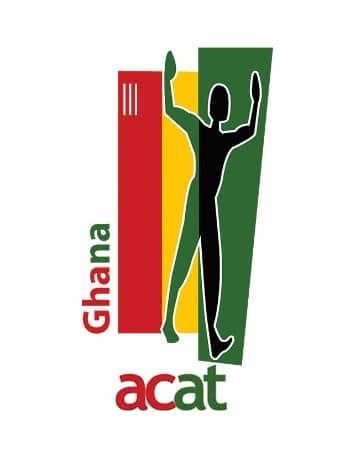
Member(s)
ACAT, GHANA
on 3 May 2024
To raise awareness about torture and the death penalty among churches and Christian organisations and civil society
2024
Ghana

Member(s)
LBH Masyarakat (Community Legal Aid Institute)
on 5 May 2021
LBH Masyarakat (Community Legal Aid Institute) is a collective of individuals who believe that every human has potential to actively participate in legal aid, to uphold justice, and to contribute to the protection of human rights. LBH Masyarakat believes in equality, non-discrimination, and acknowledgement of inherent human dignity. LBH Masyarakat defends the right of every […]
2021
Indonesia
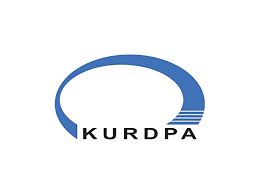
Member(s)
Kurdpa Human Rights Organization
on 29 November 2023
KURDPA is a human rights organization and independent news agency, and is a leading source for the latest information on Kurdistan in Iran, with daily coverage in three languages. Founded in 2011, KURDPA’s on-the-ground reporting highlights human rights concerns affecting the Iranian Kurdish community. Kurdpa Organization intends to compensate the existing shortcomings in identifying and […]
2023
Iran (Islamic Republic of)
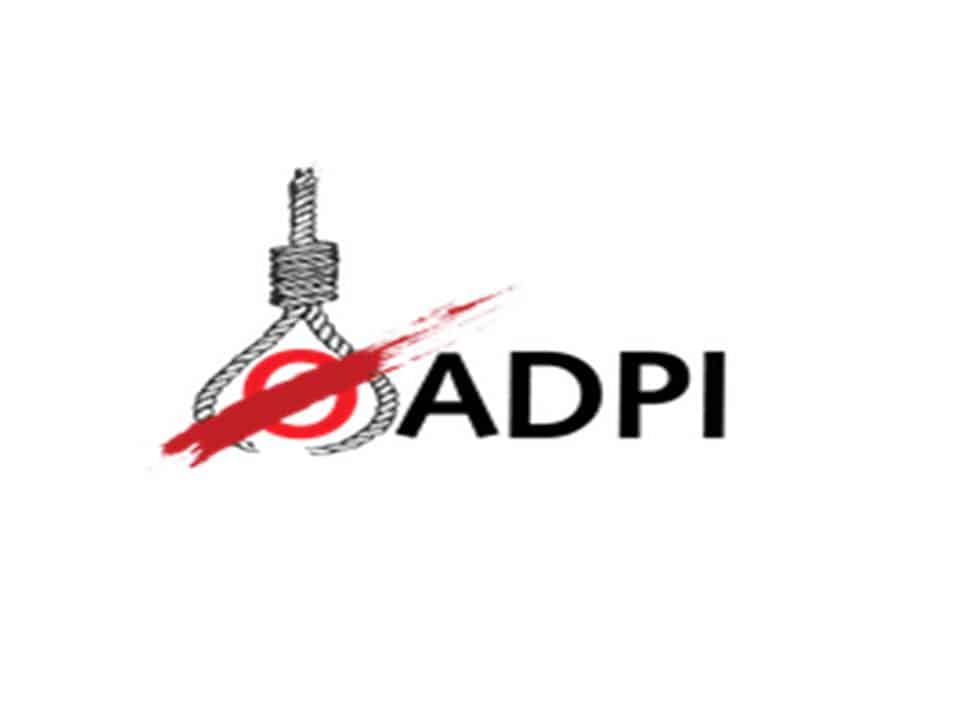
Member(s)
Abolition Death Penalty of Iraq Organization
on 30 June 2023
According to the Abolition Death Penalty of Iraq Organization, capital punishment is the state’s terminology for murder. Individuals murder each other, but states sentence individuals to ‘capital punishment.’ The demand to end capital punishment and prohibit murder stems from opposition to intentional, deliberate and planned murder of one by the other. That a state or […]
2023
Iraq

Member(s)
Madrid Bar Association
on 5 May 2021
Founded in 1596, the Madrid Bar Association is made up of 77,000 lawyers, and its main mission is to defend their corporate interests and those of the citizens they serve. Likewise, the Bar guarantees its independence and the validity of the basic values of the profession, and provides its members with the services they need […]
2021
Spain

Member(s)
New Hampshire Coalition to Abolish the Death Penalty (NHCADP)
on 30 April 2020
New Hampshire Coalition to Abolish the Death Penalty (NHCADP) ‘s mandate and goals are to abolish the Death Penalty in the State of New Hamphire and the United States. To do so, they organise the following actions: direct lobbying of legislators, letter writing campaigns to legislators and media, vigils and other public demonstrations, public information […]
2020
United States

Member(s)
Communità di Sant’Egidio
on 30 April 2020
Sant’Egidio is a Christian community born in 1968, right after the second Vatican Council. An initiative of Andrea Riccardi, it was born in a secondary school in the centre of Rome. With the years, it has become a network of communities in more than 70 countries of the world. The Community pays attention to the […]
Italy

Member(s)
Death Penalty Focus
on 30 April 2020
Death Penalty Focus (DPF) is a non-profit advocacy organization dedicated to the abolition of capital punishment in the United States through public education; grassroots organizing and political advocacy; media outreach; and domestic and international coalition building. With 150,000 members and supporters nationwide, DPF is governed by a volunteer Board of Directors comprised of renowned political, […]
United States
Member(s)
Città di Venezia
on 30 April 2020
The city of Venice is globally renowned for its unique cultural heritage and location. Venice is strongly mobilised to improve the well-being of its inhabitants, by promoting a peaceful coexistence among its people and stimulating inter-religious and intercultural dialogue. In this way the city is following the example of tolerance set by the ancient “Serene […]
Italy

Member(s)
Organisation Marocaine des Droits Humains
on 30 April 2020
The Moroccan Organisation for Human Rights (OMDH) aims to diffuse and deepen the awareness of individual and collective human rights in socio-economic, cultural, civil and political matters. Working with other Moroccan, Arabic, African and international organisations, it organises conferences, debates, research, investigations and exhibitions as well as a video competition on human rights. The OMDH […]
Morocco

Member(s)
Organisation Mondiale Contre la Torture (OMCT)
on 30 April 2020
The OMCT is an independent, non-partisan, non-sectarian, Swiss international non-governmental organisation, founded in Geneva in 1985. It is today the leading global civil society network against torture including more than 200 local member organisations operating in over 90 countries around the world. Driven by the needs of its SOS-Torture Network members, the OMCT engages in […]
Switzerland
Member(s)
Rescue Alternatives Liberia (RAL)
on 30 April 2020
Being the forerunner of prisoners’ rights and anti-torture and death penalty in Liberia, we have the vision that the Liberian society will adheres to: 1. The tenets of human rights, rule of law and democracy for all people; 2. Active citizens’ participation in national and local governance; and 3. Rehabilitation of survivals of torture, violence […]
Liberia

Member(s)
Kurdistan Human Rights Network
on 30 April 2020
Iran (Islamic Republic of)
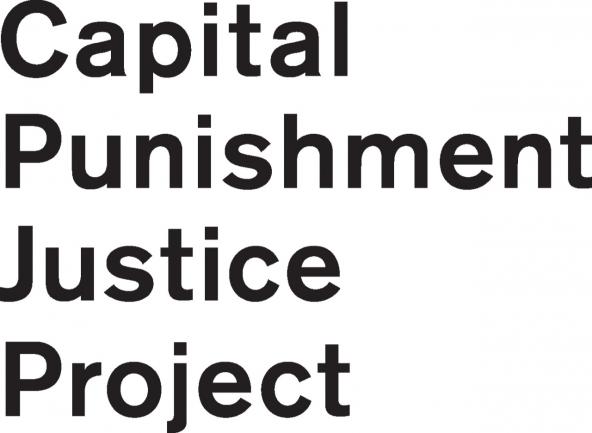
Member(s)
Capital Punishment Justice Project (CPJP)
on 30 April 2020
Capital Punishment Justice Project – CPJP (formerly known as Reprieve Australia) is an Australian NGO working to assist in the provision of effective legal representation and humanitarian assistance to those facing the death penalty at the hands of the State. CPJP also works to raise awareness of the application of the death penalty by the […]
Australia
Member(s)
Catholic Commission for Social Justice (CCSJ)
on 30 April 2020
Mandate and goals : To be a fearless united voice challenging injustice, awakening social consciousness and fostering integral development. We strive for this through: Social Justice Education and Advocacy; Promoting people-centred development, and; Working for the transformation of inequitable structures and systems Kind of actions : Promote and create opportunities, structures and programmes to achieve […]
Trinidad and Tobago
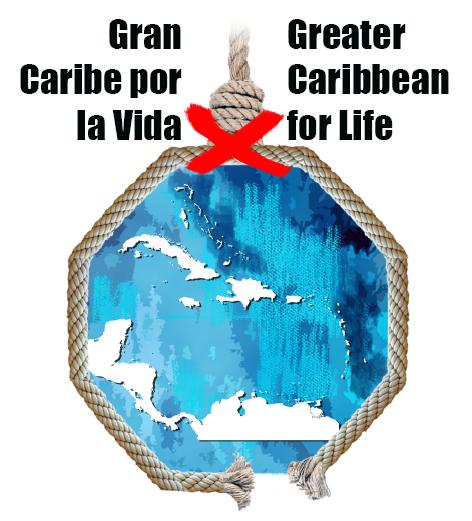
Member(s)
Greater Caribbean for Life
on 30 April 2020
The Greater Caribbean for Life (GCL) is an independent, not-for-profit civil society organization, incorporated under the laws of the Commonwealth of Puerto Rico. GCL was established on 2 October 2013 by activists and organizations from twelve Greater Caribbean countries following an International Conference held in Port of Spain, Trinidad and Tobago. Our organization came into […]
Trinidad and Tobago

Member(s)
Ordre des avocats du Barreau de Versailles
on 30 April 2020
France
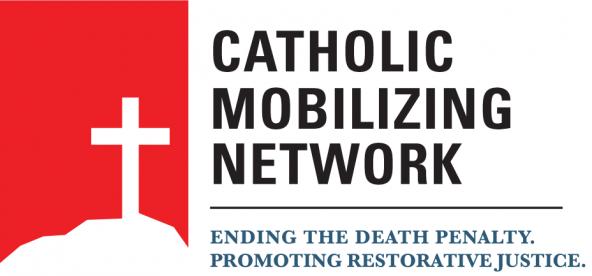
Member(s)
Catholic Mobilizing Network
on 30 April 2020
Catholic Mobilizing Network is a national organization working in close collaboration with the United States Conference of Catholic Bishops (USCCB) and living the mission of the Congregation of St. Joseph. Catholic Mobilizing Network (CMN) proclaims the Church’s pro-life teaching and prepares Catholics for informed involvement in the public debate to end the death penalty and promote […]
United States
Member(s)
Leaders Organization
on 30 April 2020
Leaders Organization is a Palestinian youth led non-governmental organization that was established in 2002.The Organization prides itself in its principles and unique approach to development in the Palestinian territories. At the time, it was established to allow youths to participate in serving their society. Since then, Leaders have established a reputation for working with, serving, […]
State of Palestine
Member(s)
Marvi Rural Development Organization
on 15 September 2020
Marvi Rural Development Organization (MRDO) is registered under the Societies Act as a non-profit/non-government organization in 1994 envisioned to address social sufferings of marginalized and underprivileged population segments in northern Sindh, particularly disadvantaged men, women and children. Since its inception, MRDO has designed and implemented over 60 projects of diversified nature for vulnerable, disastrous, and […]
2020
Pakistan

